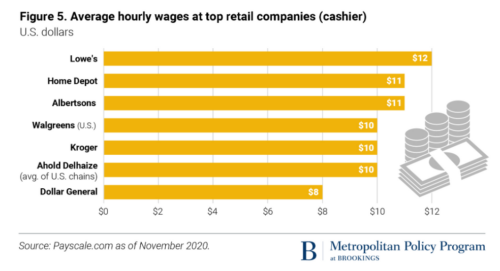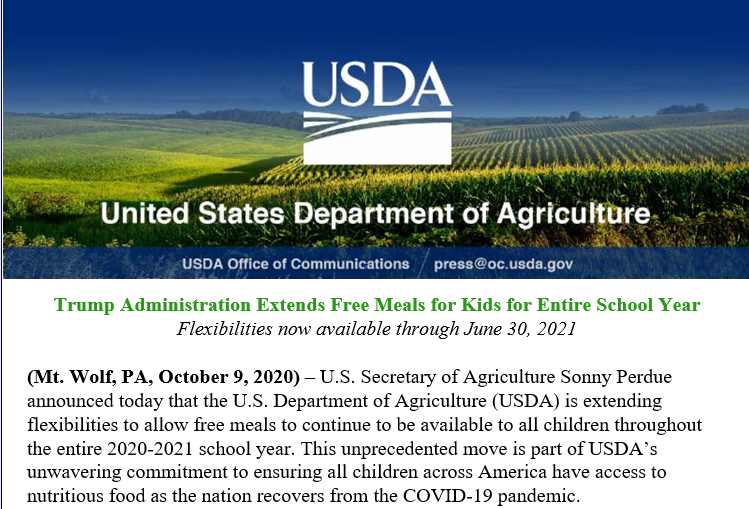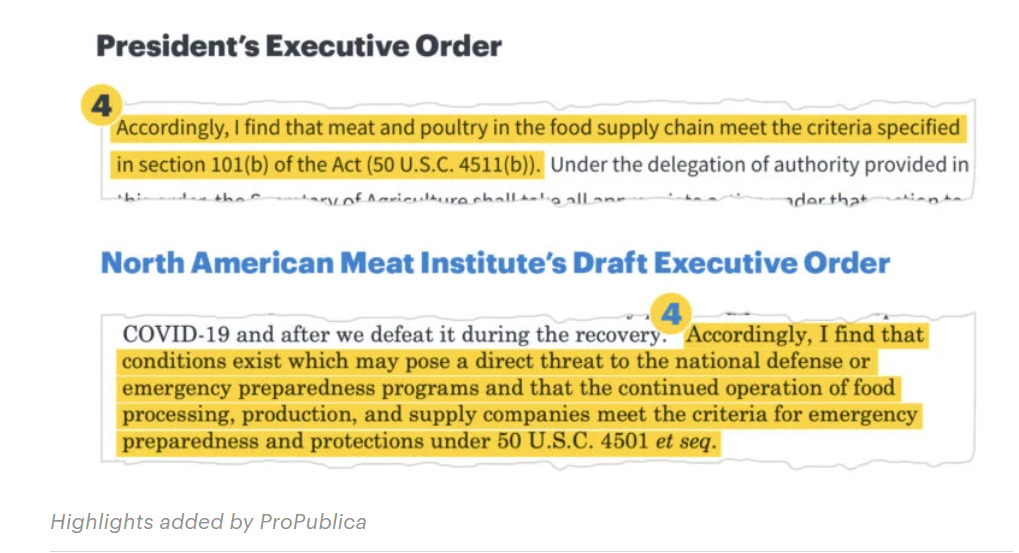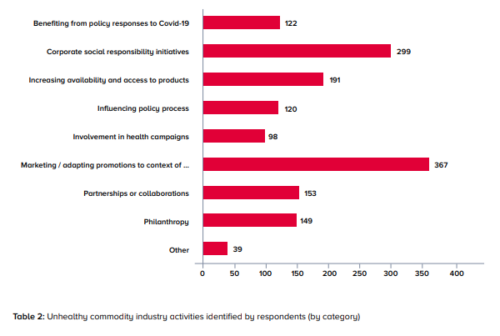How retailers exploit Covid-19: high profits from low pay and food assistance for workers
Brookings has a new report: Windfall profits and deadly risks: How the biggest retail companies are compensating essential workers during the COVID-19 pandemic.
We find that while top retail companies’ profits have soared during the pandemic, pay for their frontline workers—in most cases—has not. In total, the top retail companies in our analysis earned on average an extra $16.9 billion in profit this year compared to last—a stunning 39% increase—while stock prices are up an average of 33%. And with few exceptions, frontline retail workers have seen little of this windfall. The 13 companies we studied raised pay for their frontline workers by an average of just $1.11 per hour since the pandemic began—a 10% increase on top of wages that are often too low to meet a family’s basic needs. On average, it has been 133 days since the retail workers in our analysis last received any hazard pay.
In a blog about this report, Judd Legum and Tesnim Zekeria summarize its findings in these headlines:
- Bezos gets $73 billion; Amazon workers get 95 cents per hour
- CVS profits increase 27%; CVS workers get 2% raise
- Walton family adds $45 billion to its wealth; Walmart workers get 63 cents per hour
- Kroger cancels “hero pay,” authorizes $1 billion stock repurchases
How are these workers getting by? Federal food assistanc. A new government report has the data.
The report is titled “FEDERAL SOCIAL SAFETY NET PROGRAMS: Millions of Full-Time Workers Rely on Federal Health Care and Food Assistance Programs.”
It finds that roughly half of Medicaid and SNAP enrollees work at least 35 hours a week, but make so little money that they qualify for these programs.
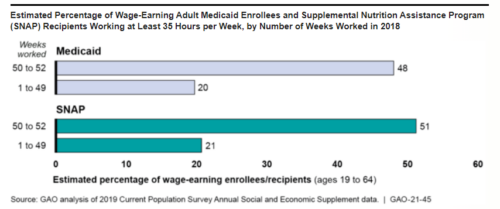
The employers of low-wage workers who get federal benefits are companies like Walmart, McDonald’s, Waffle House, Kroger, Burger King, and Wendy’s.
What this means is that taxpayers are making up the shortfall in wages, and that use of Medicaid and SNAP are externalized costs of these businesses, as these reports make clear.

